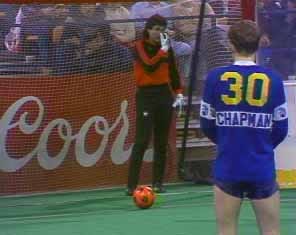Andy Scores! Vol 3 - Part 2/4: A Force in Cleveland
Big crowds in Cleveland. A Detroit summer imperiled. Contract disputes and a triumph. And a MVP competition.
To read Part 1 of Volume 3, click here.
To read Parts 1, 2, and 3 of Volume 2, click here, here, and here.
To read Volume 1, published back in April, become a subscriber (only $7.99 a month!) by clicking above. Here are the links to Part 1 and Part 2 of Volume 1.
The following is Andy Chapman in his own words:
“I scored some of my best goals in Richfield Co…
Keep reading with a 7-day free trial
Subscribe to MISL 1980s: The Story of Indoor Soccer to keep reading this post and get 7 days of free access to the full post archives.



